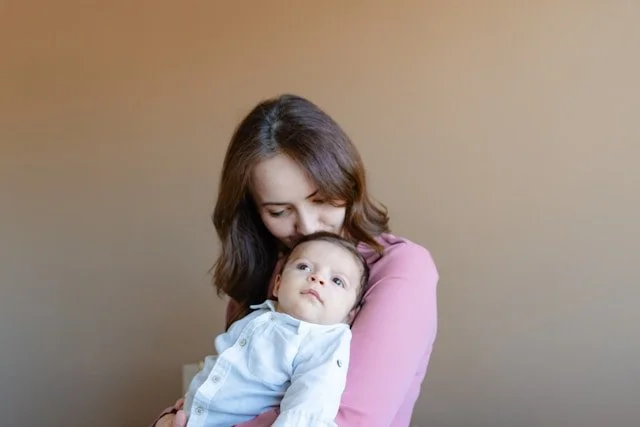
Online Pregnancy Loss Therapy in Florida & Maine
A supportive space to process grief, honor your loss, and begin healing
Pregnancy and infant loss can change you in ways few people understand. I provide online grief therapy for pregnancy and infant loss to adults in Florida and Maine who need a safe, compassionate space to heal.
When Grief Feels Overwhelming
After pregnancy or infant loss, the world often expects you to move on—but your body and heart haven’t caught up.
You may feel deep sadness, anger, guilt, numbness, or anxiety. You’re trying to function, but the grief shows up unexpectedly—through tears, tension, exhaustion, or fear of the future.
It can feel isolating, especially when others don’t know what to say or minimize your loss.
You Don’t Have To Carry Your Grief It Alone. Grief Therapy Can Help!
You’re Grief Is Real — and It Matters
There is no timeline for grieving pregnancy or infant loss. There is no “right” way to feel.
Your loss mattered. Your experience mattered. And you deserve support that honors that truth.
Therapy offers a space where nothing needs to be rushed, explained, or minimized.
I offer online grief counseling that is gentle, validating, and tailored to your experience.
Together, we focus on:
Processing grief and trauma
Navigating triggers and anniversaries
Managing anxiety and emotional overwhelm
Coping with isolation and misunderstandings
Finding meaning and stability after loss
This work happens at your pace, with care and respect.
My Approach To Bereavement Counseling
How Grief Counseling Can Help
Therapy can help you:
Feel less alone in your grief
Process painful emotions safely
Reduce anxiety and emotional shutdown
Reconnect with yourself and your body
Begin moving forward without forgetting your loss
What to Expect From Working Together
A safe, compassionate, nonjudgmental space
Support tailored to your loss and needs
Practical coping tools for daily life
Gentle guidance through grief
Sessions are offered via secure telehealth to adults in Florida and Maine.
You May Still Have Some Questions About Grief Therapy
-
Everyone processes grief differently, but here are some signs that you might benefit from therapy:
You’re dealing with intense or ongoing emotional or physical symptoms like sadness, anger, guilt, anxiety, fatigue, sleep issues, or loss of appetite.
You feel stuck or overwhelmed by grief and are struggling to cope after a miscarriage, abortion, pregnancy, or infant loss.
You’ve experienced multiple miscarriages in a short time, making it harder to process the grief.
Your grief is affecting your daily life—work, relationships, or personal responsibilities.
You feel isolated or unsupported and need a safe space to express your feelings and explore coping strategies.
If any of this resonates, online grief therapy can help you manage your emotions and move forward in your healing journey.
-
I offer grief counseling for individuals who have experienced pregnancy loss for any reason. Support after any pregnancy loss is essential.
All loss is welcome here!
My goal is to provide a compassionate, judgment-free space where you can process your grief and emotions openly and safely.
-
The length of grief counseling depends on several factors, including the intensity of your loss, how you cope, and how often you attend therapy.
Some people may feel relief after just a few sessions, while others may benefit from longer-term support.
Grief doesn’t follow a set timeline, and healing takes time. Therapy is tailored to your specific needs and goals, so we’ll focus on what works best for you, whether that’s short-term guidance or ongoing support.
YOU’RE NOT ALONE IN YOUR GRIEF
THERAPY IS YOUR SAFE PLACE TO HEAL!
5575 S Semoran Blvd, Orlando, FL 32822, United States
443 Western Ave South Portland, ME 04106, USA






